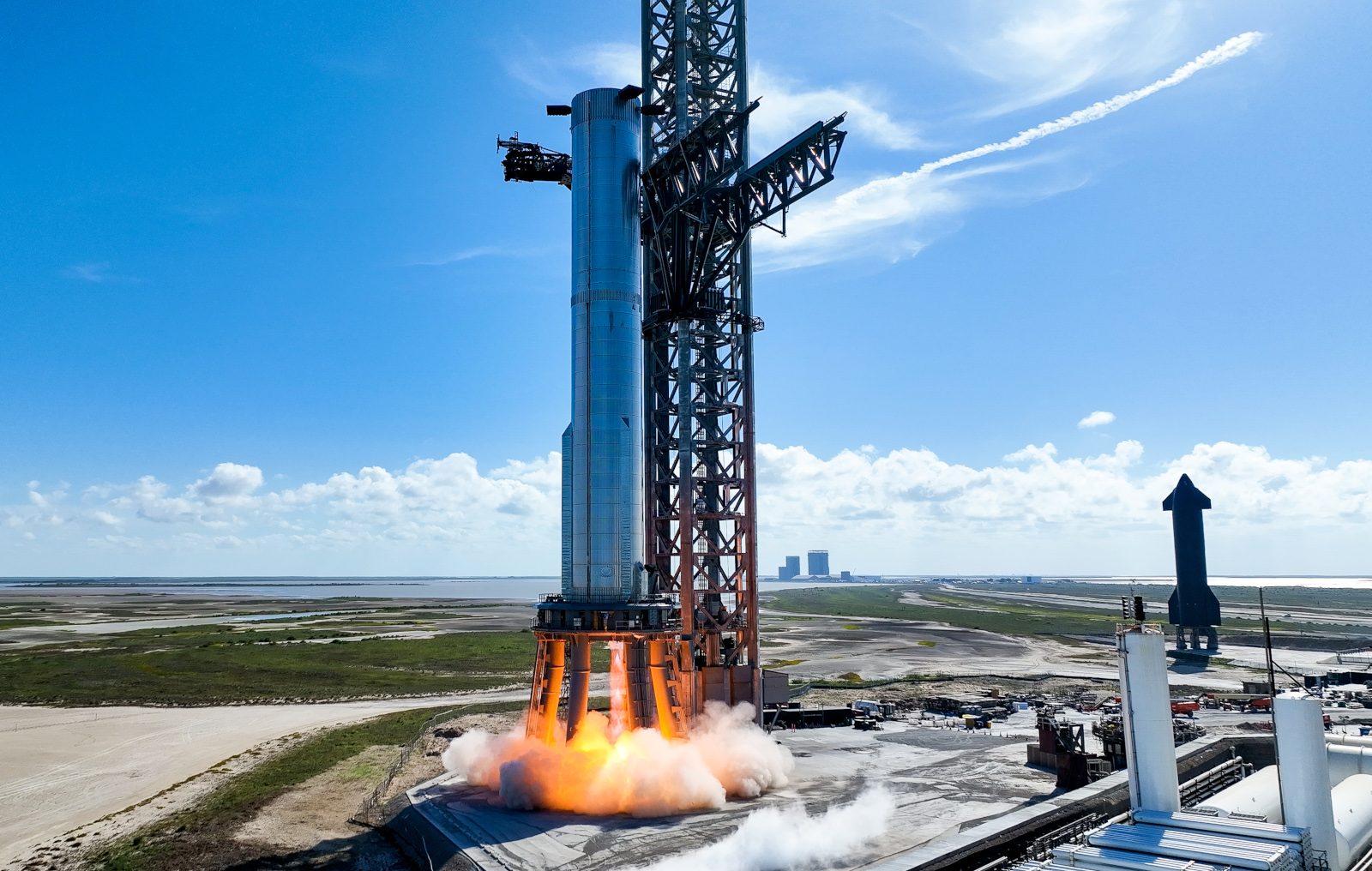SpaceX has cleared an important hurdle that brings it closer to the Starship system’s first orbital flight test. The company has successfully completed a static fire test of the Super Heavy’s current prototype, the Booster 7, a month after its previous attempt ended up in flames. SpaceX used the Booster 7 for this test again but fired only a single Raptor engine on the orbital launch pad, igniting it for a few seconds to give engineers a close look at how it’s performing.
The Booster 7 is equipped with 33 Raptor version 2 engines meant to give it lift it needs to launch both the first stage itself and its upper stage companion, the Starship spacecraft. During the company’s previous static fire test attempt, the booster caught fire on the launch pad. Company chief Elon Musk revealed on Twitter back then that the issue had stemmed from the engine spin start test SpaceX had conducted and that going forward, the company “won’t do a spin start test with all 33 engines at once” anymore.
In addition to testing Booster 7, SpaceX also did a static fire test on two of the six Raptor engines on Starship 24. That’s the current prototype for the launch system’s upper stage, and it’s what will fly to space for the system’s first orbital flight test . It’s still unclear when SpaceX intends to send the Starship to orbit for the first time, but it likely has to conduct more testing before that happens, including static firing more of its Raptor engines.
All products recommended by Engadget are selected by our editorial team, independent of our parent company. Some of our stories include affiliate links. If you buy something through one of these links, we may earn an affiliate commission.
